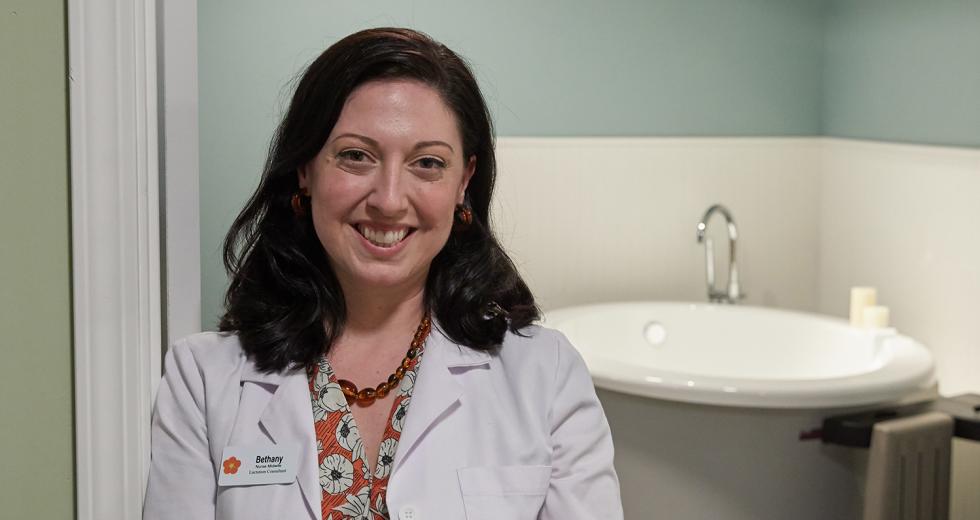After Bethany Sasaki became certified as a lactation consultant about a decade ago, she took a break from her hospital nursing job to earn some cash consulting while caring for her newborn son. She drove all over the Sacramento region to meet with moms struggling to breastfeed. And her phone kept on ringing.
“It got so big, I knew I couldn’t ever go back to nursing because I would be leaving this huge hole in the community,” says Sasaki, who started her business as a sole proprietorship in 2010. “I realized the community really needed it.”
Sasaki opened a breastfeeding medicine clinic in East Sacramento in 2015. All along, she had a bigger goal in mind: to open a birth center. In June, Sasaki’s business, Midtown Nurse Midwives, expanded its services and relocated to Midtown in a renovated 1903 Victorian house, providing lactation consulting, basic women’s health care and the Midtown Birth Center.
The Midtown Birth Center is the only freestanding birth center in Sacramento’s central city, and one of only a few in the region. A birth center is a homelike facility that provides prenatal, birth and postpartum care and offers an alternative to a hospital or home birth. Sasaki’s business is seeking licensure as an Alternative Birth Center from the California Department of Public Health and undergoing national accreditation from the Commission for the Accreditation of Birth Centers.
The center’s two birthing suites resemble a bedroom, with a bed, dresser containing medical supplies and nightstands. There’s also a birth pool. A birth ball, birth stool and yoga swing can be provided to assist with comfort and labor positions. A mobile nitrous oxide machine is available for patients to self-administer. “It’s a real nice way to get over that hump of, ‘I can’t do that anymore,’” Sasaki says. The center does not offer epidurals. A patient is encouraged to eat and drink — unlike in the hospital setting. An IV is only for those who need antibiotics during labor. A nurse midwife completes a full newborn exam, and the mother and baby are released four hours after birth.
“Just like I saw the need for high-volume lactation care, there’s also a need for high-volume birth-center care.” Bethany Sasaki, founder and director, Midtown Nurse Midwives
The center admits only healthy, low-risk patients who are expecting one healthy baby and do not have medical conditions that complicate pregnancy, such as hypertension, Type 1 diabetes or drug addiction. Sasaki says she expects about 15 percent of her patients to develop a risk factor during pregnancy that makes them ineligible for continued care. At capacity, the center is projected to enroll 240 women a year, with about 173 babies born there. “Just like I saw the need for high-volume lactation care, there’s also a need for high-volume birth-center care,” Sasaki says. “So that’s why I’m trying to open as high-volume birth center as I can without compromising quality.”
Over the past 30 years, Sasaki says, public awareness about interventions that impair breastfeeding and the high rate of cesarean sections in the United States has led to an increased demand for natural or low-intervention childbirth. “Women are asking for no IV, women are asking for intermittent fetal monitoring, women are asking for water births, they’re asking to be ambulatory during labor,” she says. “Those are not things that are as easy to do in a hospital setting because of the medical model and because hospitals are a very litigious area, and a lot of time the hospital’s hands are tied.”
Sacramento resident Marie Anderson wanted to deliver her first child at the Midtown Birth Center because of the homelike setting and supportive atmosphere, she says. “I wanted the personal level of support from the midwives and the ability to labor and deliver on my terms, letting my body do what it was designed to do without pressures of intervention and constant monitoring.”
Ultimately, Anderson’s labor stalled, and she was transferred to a hospital less than 1 mile away, where she gave birth to her daughter. She says Sasaki and fellow nurse midwife Jenny Markovic came to the hospital and were present for the birth. “While I didn’t deliver at the birth center,” she says, “I am forever grateful for Jenny and Bethany and their support throughout my entire labor — 51 hours.”
—
Get this and other stories delivered to your inbox weekly: Sign up for our free email newsletter by clicking or tapping here.



